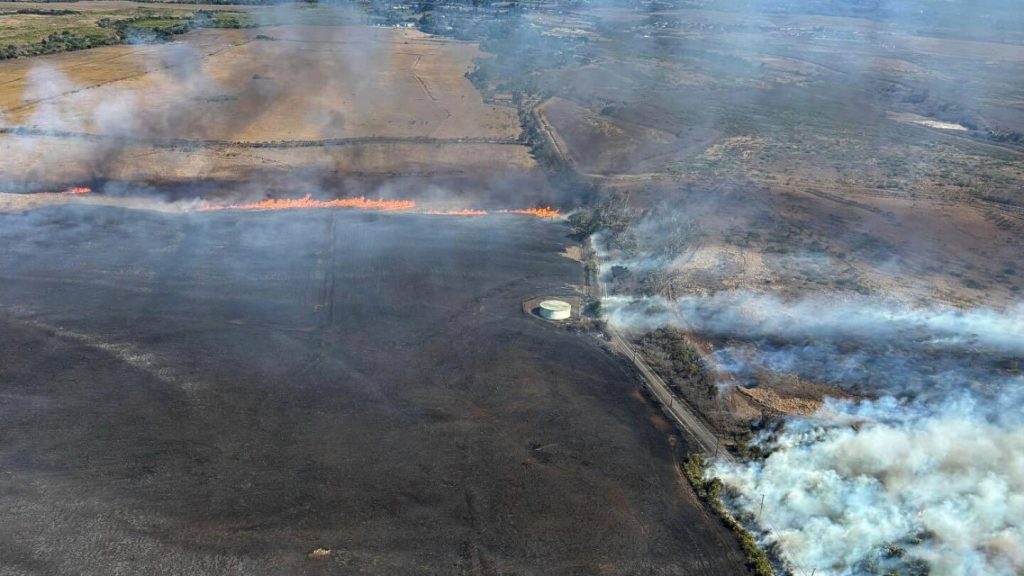Listen to the article
Eleven states and Kentucky’s governor filed a lawsuit against the Trump administration Tuesday, challenging what they describe as “unlawful terms” imposed on federal disaster and terrorism preparedness funding.
The legal action, filed in U.S. District Court in Eugene, Oregon, targets the Department of Homeland Security (DHS) and the Federal Emergency Management Agency (FEMA). The coalition of predominantly Democratic-led states includes Michigan, Oregon, and Arizona, along with Kentucky Governor Andy Beshear.
At the heart of the dispute are two significant changes to grant funding that states rely on for emergency management and security operations. First, FEMA dramatically reduced the timeframe for spending emergency management funds from three years to just one year. Second, the agency now requires states to submit population counts that exclude people removed under immigration law to receive these critical funds.
“The Trump administration has repeatedly expressed a desire to diminish FEMA’s role and shift the burden of emergency management to the States, thus reverting to an inconsistent patchwork of disaster response across the Nation,” the states argued in their complaint.
The lawsuit focuses on two major grant programs: the $320 million Emergency Management Performance Grant (EMPG) and the $1 billion Homeland Security Grant Program. These programs provide essential funding that state and local agencies use for emergency preparedness staff salaries, training programs, and equipment purchases.
States received notices of their award amounts just before the end of the fiscal year on September 30. However, on October 1, FEMA imposed a “funding hold” on all recipients, informing them that funds would be withheld until states provided “certification” of their current populations, specifically excluding individuals “removed from the State pursuant to the immigration laws of the United States.”
The complaint characterizes this requirement as “arbitrary and capricious,” noting that states do not maintain real-time population counts. The lawsuit argues that tracking immigration removals falls under DHS jurisdiction, not state governments, and that federal law requires agencies to use Census data for funding allocations.
A DHS spokesperson defended the changes in a statement to The Associated Press, describing them as “part of a methodical, reasonable effort to ensure that federal dollars are used effectively and in line with the administration’s priorities and today’s homeland security threats.”
The shortened spending window presents another major challenge. By reducing the timeframe from three years to one, the plaintiffs argue the administration has “imposed significant obstacles” that make the funding “largely unusable” for many jurisdictions that rely on multi-year planning cycles for emergency management.
The impact of these restrictions could be devastating for state emergency operations. Arizona stands to receive $6.6 million from EMPG, which funds half of the state’s emergency management operations, according to the complaint. In Oregon, the Department of Emergency Management estimates that without EMPG funding, two-thirds of the state’s counties would lose “significant or even all capacity to perform basic emergency management functions.”
This legal challenge represents the latest in a series of lawsuits brought against the Trump administration over changes to FEMA funding. President Trump has consistently advocated for diminishing FEMA’s federal role and shifting more disaster response responsibility to state governments.
The timing of these changes is particularly concerning as states face increasingly frequent and severe natural disasters, from wildfires in western states to hurricanes along the Gulf and Atlantic coasts. Emergency management experts worry that restricting these funds could hamper disaster preparedness at a time when robust response capabilities are more critical than ever.
The case will likely hinge on whether the court determines that FEMA exceeded its authority by imposing these new conditions without proper legislative approval or adequate notification to the states. A ruling could have far-reaching implications for how federal emergency management funds are distributed across the country.
Fact Checker
Verify the accuracy of this article using The Disinformation Commission analysis and real-time sources.




9 Comments
It’s disheartening to see the Trump administration making policy decisions that seem more politically motivated than focused on public safety and emergency preparedness. Hopefully the courts will intervene to protect FEMA’s important role.
Yes, the politicization of disaster response is very troubling. FEMA should remain a nonpartisan agency dedicated to helping all Americans in times of crisis, regardless of immigration status or political affiliation.
This sounds like a concerning attempt by the Trump administration to undermine FEMA’s ability to provide critical emergency assistance. Excluding undocumented immigrants from population counts for disaster funding is particularly troubling.
It’s important that disaster funding is distributed fairly and effectively, regardless of immigration status. I hope the courts rule against these changes.
This lawsuit highlights the ongoing tension between the federal government and states over the management of emergencies and natural disasters. It’s critical that FEMA maintain its authority and resources to effectively coordinate a national response.
Reducing FEMA’s role and shifting the burden to states is a concerning trend. A consistent, nationwide approach to disaster management is essential, rather than a patchwork of varying state capabilities.
Absolutely. FEMA provides crucial coordination and resources that states often struggle to replicate on their own. Undermining the agency’s authority could leave many vulnerable communities without adequate support.
The time restriction on spending emergency funds is also quite alarming. States need flexibility to manage disaster response and recovery over a reasonable timeline. This seems like another ideological move against federal assistance.
I agree, one year is far too short a timeframe for states to utilize critical FEMA grants. This could seriously hamper their ability to prepare for and respond to emergencies.